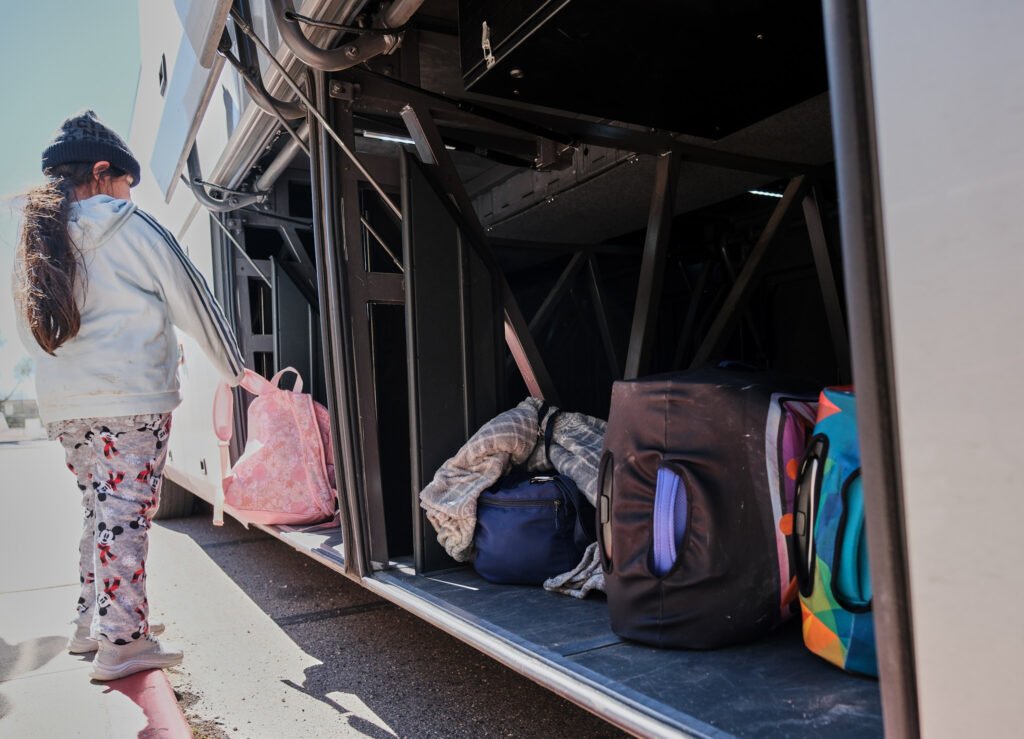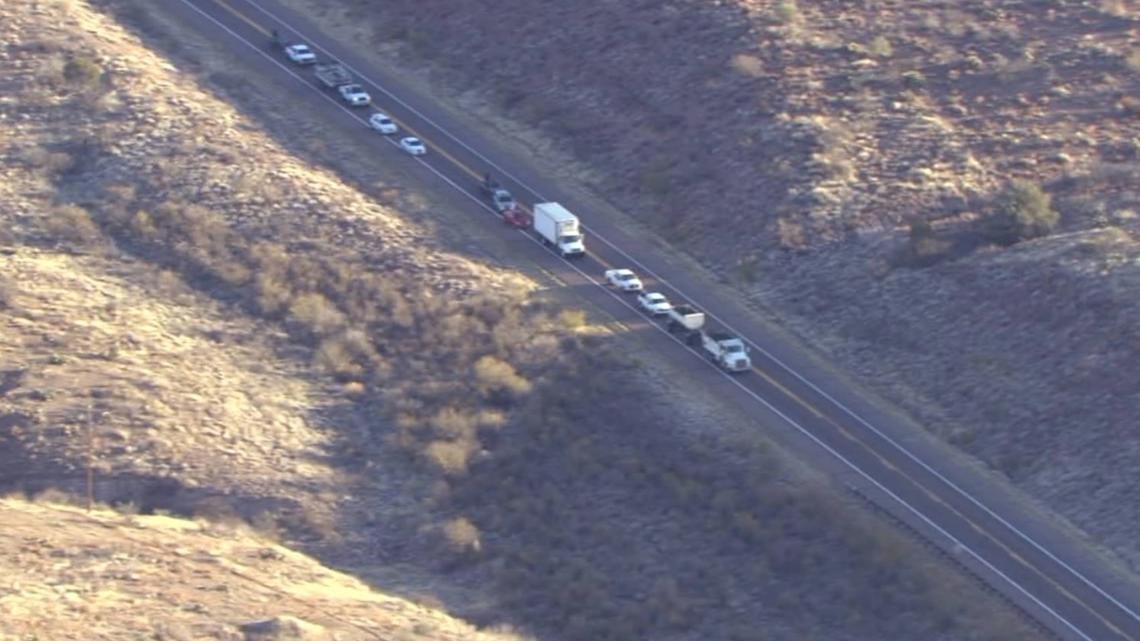Pima County has a long history of providing sanctuary to immigrants and aid to families seeking asylum from around the world. But as federal funding dwindles, these programs are at risk.
Pima County officials announced they will no longer provide shelter to asylum seekers and end a program that has helped thousands of people as federal funding expires. 400,000 people Over the past five years.
At Tuesday's Pima County Board of Supervisors meeting, County Executive Jan Lescher said federal funding for the program is scheduled to run out by March 31 and they can't afford the cost.
“We have indicated that as long as there is federal money, we are willing to fund this unique federal program,” Rescher said. “And we've always said this is not the general fund's responsibility.”
Since 2019, the county has partnered with: catholic community services Provide asylum seekers with shelter, transportation, food and medical care. These individuals and families are legally processed at the U.S. border and taken to the Casa Alitas Welcome Center in Tucson, typically for about 48 hours, before being transported to areas of the country where they have family or sponsors. To date, the program has been fully funded by the Federal Emergency Management Agency.
The number of people seeking asylum in the county fluctuates widely from week to week. The county saw a record number of arrivals in the second week of December at 10,200, but by early January that number had dropped to 4,700.
Pima County currently receives an average of 1,000 asylum seekers per day, about half of whom come from Santa Cruz and Cochise counties. Lesher said he estimates the county will need to spend up to $60 million a year to maintain operations at this rate. It's unclear exactly how much federal money went into the program, but Rescher said funding is often provided intermittently, one to two months at a time.
“It is very frustrating and unfortunate that we are in this situation,” Lesher wrote. February 16th Memo to the Board of Directors. “This is a crisis created by the federal government by failing to pass sensible border and immigration reform and providing needed funding to local governments that are being forced to respond to the negative effects of federal border policies.”
As the county prepares to close the program, Lesher said the biggest concern is preparing for an influx of asylum seekers with nowhere to go. In years past, U.S. Customs and Border Protection had been dropping off immigrant families at the Greyhound bus stop in downtown Tucson, but a partnership between Pima County and Catholic Community Services has curtailed that process.
Lesher said Casa Alitas expects to only be able to help up to 100 people a day without federal funding.
“That means up to 400 people per day could be released onto the streets of Tucson starting as early as April 1,” she said.
Rescher proposed two contingency plans. One proposal would use a former prison facility to shelter asylum seekers, and the other would use the Pima County Motorsports Complex to create an outdoor facility. But she did not recommend moving forward with either plan.
“My recommendation is to not fund the options presented in the emergency rest area plan,” Rescher said. “We have been doing everything we can for five years, with more than a dozen county departments involved in managing a complex shelter coalition.”
Despite the possibility of street release, Democratic Supervisor Adelita Grijalva agreed that the program cannot continue without federal support.
“I think Pima County has done a really great job of stepping up and keeping our community safe and providing a path for legitimate asylum seekers to get to their final destination,” she said. said. “However, I do not believe that Pima County should use county resources that are desperately needed for county programs to fund federal programs.”
Supervisor Steve Christie, the only Republican on the board, criticized the board's Democratic majority, saying the county should never have agreed to receive the federal funds in the first place.
“If we were so concerned about street release as our motivation for going into the asylum business, why would we spread the word to the world that you can come to Pima County and be taken care of?” he said.
The Board of Supervisors also heard from several area residents who opposed asylum seeker protection across the county, calling it an “invasion.” All immigrants who come through Pima County's program are being processed by federal agencies and pursuing their legal right to seek asylum within the country.
Pima County officials have been warning for months that the deadline for federal funding was approaching, but some hoped national leaders would take action before then. On February 4, a bipartisan group of U.S. senators introduced a comprehensive 400-page immigration bill that includes $1 billion for additional shelter programs. The bill failed to pass the floor. Border security and immigration are expected to be key issues among Arizona voters in both the presidential and U.S. Senate elections.
“The failure of our federal leadership will have an incredible impact on our entire region. And I sincerely hope that's taken into account by everyone between now and March 31st. ” said District 1 Supervisor Rex Scott. “We should not be in this position. We have his five-year record that we can point to with pride, not just in terms of what could have been done, but what could have been prevented.” I am.”
Going forward, the oversight committee said it will draft a joint letter to Southern Arizona's congressional delegation detailing the reasons for the program's termination and its impact. These include Democratic Rep. Raul Grijalva and Republican Rep. Juan Ciscomani.
Grijalva also said the board should consider how it can help the city of Tucson prepare for the loss of shelter for people seeking asylum in the coming months. City leaders are scheduled to discuss the issue at a meeting this week.
related
Republish our articles online or in print for free.
















